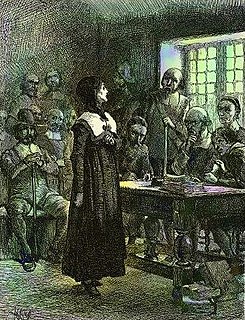A Quote by Tony Campolo
There are 2,000 verses of Scripture that tell us we must be committed to protecting the poor and the oppressed... There is no concern of Scripture that is addressed so often and so powerfully as reaching out to the poor.
Related Quotes
Jesus refers to the poor over and over again. There are 2,000 verses of Scripture that call upon us to respond to the needs of the poor. And yet, I find that when Christians talked about values in this last election that was not on the agenda, that was not a concern. If you were to get the voter guide of the Christian Coalition, that does not rate. They talk more about tax cuts for people who are wealthy than they do about helping poor people who are in desperate straits.
All appeals to Scripture are appeals to interpretations of Scripture. The only real question is: whose interpretation? People with differing interpretations of Scripture cannot set a Bible on a table and ask it to resolve their differences. In order for the Scripture to function as an authority, it must be read and interpreted by someone. According to "solo" Scriptura, that someone is each individual, so ultimately, there are as many final authorities as there are human interpreters.
It is scripture alone, not conservative Evangelical tradition or any other human authority, that must function as the normative authority for the definition of what we should believe. The authority of the scripture means that all the words in scripture are God's words in such a way that to disbelieve or disobey any word of scripture is to disbelieve or disobey God.
We often sometimes forget that- prior to the invention of removable pipe- there really were no English Bibles. We have treasures, we have Bibles in every size and shape and color. But there's a failure to recognize what's contained inside the cover of the Bible. We grow apathetic, and I think that the issue is reacting to the Word of God. Not just carrying, but get back into the Word of God and then get the Word of God into us. It's all about mining the scripture, memorizing the scripture, and meditating with our scripture.
[T]he scripture worshippers put the writings ahead of God. Instead of interpreting God's actions in nature, for example, they interpret nature in the light of the Scripture. Nature says the rock is billions of years old, but the book says different, so even though men wrote the book, and God made the rock and God gave us minds that have found ways to tell how old it is, we still choose to believe the Scripture.
Jesus accepted the plenary [i.e., complete, extending to all its parts] inspiration of the Bible; when first approached by the devil to turn stones into bread, our Lord replied that man lives by every word that proceeds from the mouth of God (Matt. 4:4 quoting Deut. 8:3). He did not say, "some words" but "every word." If Scripture is breathed out from God (2 Tim. 3:16), then Scripture must be included in what sustains man, not only parts of Scripture but all of it.



































